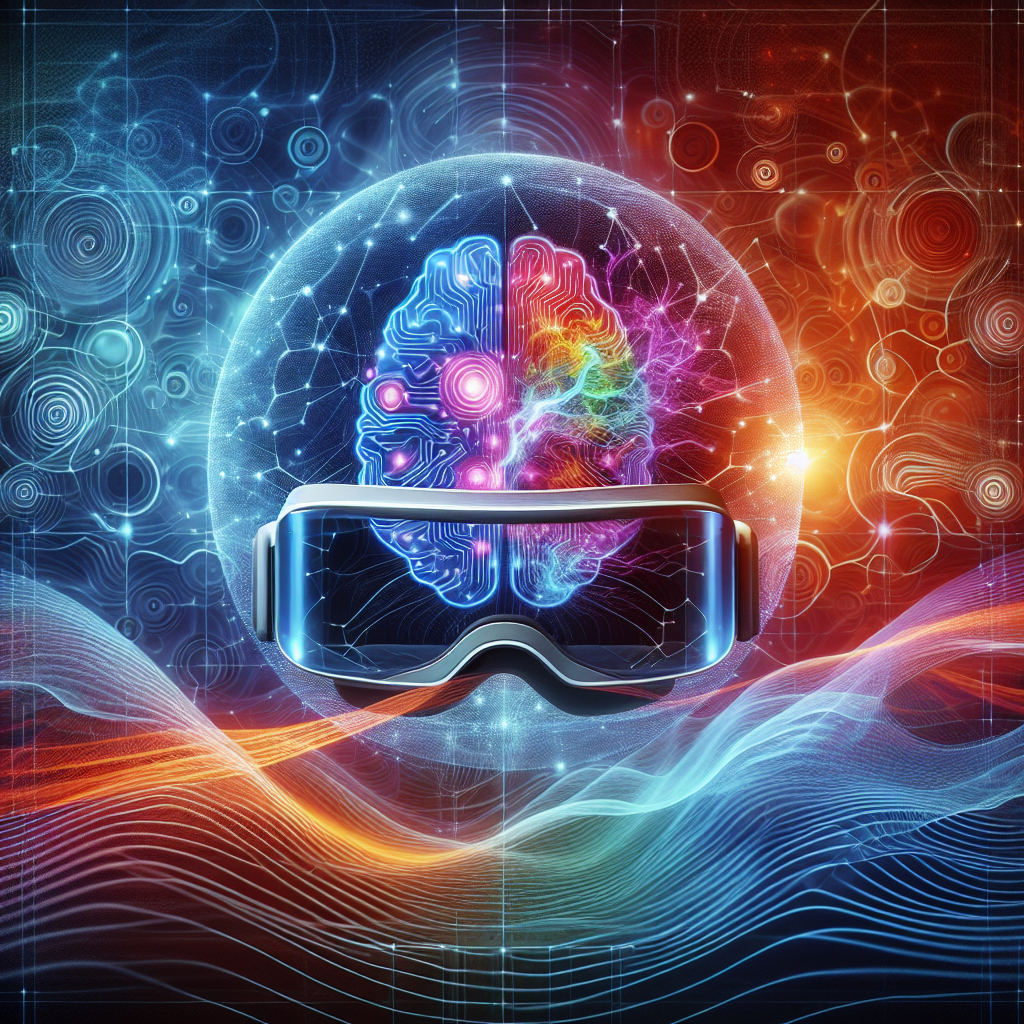Artificial Intelligence (AI) and Virtual Reality (VR) are two cutting-edge technologies that are rapidly transforming the way we interact with the digital world. When combined, they have the potential to create truly immersive experiences that blur the line between the virtual and physical worlds. In this article, we will explore how AI is enhancing VR experiences, the benefits of this integration, and some FAQs about this exciting new technology.
How AI is Enhancing Immersive Experiences
AI is revolutionizing VR in several ways, making virtual experiences more realistic, interactive, and personalized. One of the key ways AI is enhancing VR is through the use of machine learning algorithms to create more realistic and dynamic virtual environments. By analyzing user behavior and preferences, AI can generate personalized content and adapt the virtual world in real-time to provide a more engaging and immersive experience.
AI is also being used to enhance the realism of virtual characters and objects in VR environments. By using AI-powered algorithms to simulate human behavior and emotions, virtual characters can interact with users in a more natural and lifelike way, making the virtual world feel more alive and immersive.
Another way AI is enhancing VR experiences is through the use of natural language processing (NLP) and speech recognition technology. By enabling users to interact with virtual environments using voice commands, AI can create a more intuitive and immersive experience that feels more like interacting with the real world.
Benefits of AI-Enhanced VR Experiences
The integration of AI and VR offers a wide range of benefits for both consumers and businesses. For consumers, AI-enhanced VR experiences provide a more personalized and engaging way to interact with digital content. By analyzing user behavior and preferences, AI can create personalized virtual experiences that are tailored to individual preferences, making the virtual world feel more immersive and interactive.
For businesses, AI-enhanced VR experiences offer new opportunities for customer engagement and brand building. By creating immersive and interactive virtual experiences that are powered by AI, businesses can create more engaging and memorable experiences for their customers, driving brand loyalty and increasing customer satisfaction.
AI-enhanced VR experiences also have the potential to revolutionize industries such as education, healthcare, and entertainment. By creating immersive and interactive virtual environments that are powered by AI, educators can provide more engaging and personalized learning experiences for students, healthcare providers can use VR to simulate medical procedures and training, and entertainment companies can create more immersive and interactive virtual worlds for their audiences.
FAQs about AI-Enhanced VR Experiences
Q: How is AI being used to enhance VR experiences?
A: AI is being used in a variety of ways to enhance VR experiences, including creating more realistic and dynamic virtual environments, enhancing the realism of virtual characters and objects, and enabling users to interact with virtual environments using natural language processing and speech recognition technology.
Q: What are some of the benefits of AI-enhanced VR experiences?
A: Some of the benefits of AI-enhanced VR experiences include more personalized and engaging virtual experiences, improved customer engagement and brand building opportunities for businesses, and the potential to revolutionize industries such as education, healthcare, and entertainment.
Q: How can businesses leverage AI-enhanced VR experiences?
A: Businesses can leverage AI-enhanced VR experiences to create more engaging and immersive virtual experiences for their customers, drive brand loyalty and customer satisfaction, and explore new opportunities for customer engagement and brand building.
Q: What are some of the potential applications of AI-enhanced VR experiences?
A: Some potential applications of AI-enhanced VR experiences include personalized learning experiences in education, simulated medical procedures and training in healthcare, and immersive and interactive virtual worlds in entertainment.
In conclusion, AI and VR are two powerful technologies that are reshaping the way we interact with the digital world. By combining these technologies, we can create truly immersive and engaging virtual experiences that offer a wide range of benefits for consumers, businesses, and industries. As AI continues to evolve and improve, the possibilities for AI-enhanced VR experiences are endless, and we can expect to see even more exciting innovations in the future.

